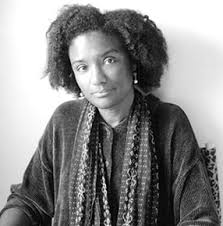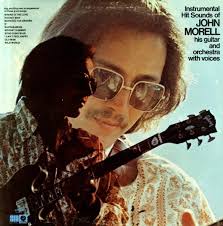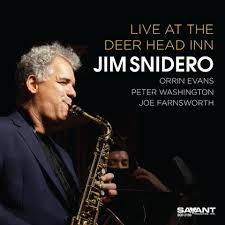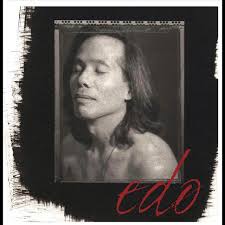
Jazz Poems
MUSIC FOR HOMEMADE INSTRUMENTS
improvising with Douglas Ewart
I dug your artless, I dug you out. Did you re-do? You dug me less, art. You dug, less do art. You dug me, less art. Did you re-do? If I left art out, you dug. My artless dug-out. You dug, let art out. Did you re-do, dug-out canoe? Easy as a porkpie piper-led cinch. Easy as a baby bounce. Hop on pot, tin pan man. Original abstract, didyou re-do it? Betting on shy cargo, strutting dimpled low-cal strumpets employ a hipster to blow up the native formica. Then divide efficiency on hairnets,flukes, faux saxons. You dug me out, didn’t you? Did you re-do? Ever curtained to experiment with strumpet strutting. Now curtains to milk laboratory. Desecrated flukes & panics displayed by mute politicians all over this whirly-gig. Hey, you dug! Art lasts. Did you re-do? Well-known mocker of lurching unused brains, tribal & lustrous diddlysquats, Latin dimension crepe paper & muscular stacks. Curtains for perky strumpets strutting with mites in the twilight of their origami funkier purses. Artless, you dig. Did you re-do? For patting wood at flatland, thanks. For bamboozled flukes at Bama, my seedy medication. Thanks for my name in the yoohoo. Continental camp-out, percolating throughout the whirly-gig on faux saxon flukes. You dig art, didn’t you? Did you re-do?
Harryette Mullen
from Jazz Poems ~ Selected and Edited by Kevin Young
More Posts: book,classic,collectible,history,jazz,library,poet

Daily Dose Of Jazz…
John Morell was born into a family of guitarists on June 2, 1958 in Niagara Falls, New York. His father was his first teacher and together they would play jazz with him leading and his father accompanying him and then they would switch.
As he matured he began composing and controlling the setting. His most recent recording Trading Places is an album that swings with a more contemporary sound. Morell often played with drummer John Guerin and added organist and keyboardist Steve Bohanon to make a trio.
He and Guerin have played on 40 films and countless TV soundtracks or at recording sessions for albums. The guitarist figures he’s played on 40 films, and countless TV soundtracks and recordings.
In 1968 Berkeley, California he played a concert with the Gil Evans Orchestra and the Miles Davis Quintet. For four years beginning in 1970, John was a member of the Shelly Manne outfit. Then, for a period of time Morell gave up playing to focus on building furniture. Though it paid the bills it wasn’t satisfying and he returned to music, operating his own studio and continued to flourish in a side career as a woodworker.
Guitarist, organist and composer John Morell, best known for his work with drummer Shelly Manne’s sextet, continues to perform and record.
More Posts: bandleader,composer,guitar,history,instrumental,jazz,music

Daily Dose Of Jazz…
Tony DiGregorio was born June 1, 1958 in Poughkeepsie, New York and started playing guitar at age 10. He later received informal lessons with uncle, Oscar DiGregorio, Louis E. Bruno, Gene Bertoncini, and Mark Diorio. He received his B.A.in music from Aaron Copland School of Music at Queens College. He studied classical guitar with Dennis Cinelli, composition with Schoenberg, harmony/counterpoint, piano and solfeggio with Paul Caputo, and improvisation/composition with Marty Ehrlich.
As a composer Tony created and performed incidental music for experimental theater productions of The Room, The Lady Aoi, and Journey into the Night in New York City and San Francisco, California with bassist Gerard Zanonico and clarinetist Robert Rossette.
From 1985 to 1994 DiGregorio played with the Swing Now Trio with various special guests Charlie Persip, Teddy Charles, Max Kaminsky, Chuck Wayne, Gene Bertoncini, Buddy Tate, Tom Harrell, Eddie Barefield, Mel Lewis, and Bobby Watson just to name a few.
Since 1994 Tony has worked with Laurel Watson, Hill Greene, Ken Filiano, Theo Wilson, Nicki Parrot, John Rasczka, Dave Hopkins Trio, Marco Katz, Tim Hays, and others including a performance of Terry Rielly’s “In C” with The Styrenes in 2003.
Guitarist and composer Tony DiGregorio continues to compose, perform and record.
More Posts: bandleader,composer,guitar,history,instrumental,jazz,music

Daily Dose Of Jazz…
James J. Snidero was born in Redwood City, California on May 29, 1958 and grew up in the Washington, D.C. suburb of Camp Springs, Maryland. He then attended the University of North Texas, performed in the One O’clock Lab band and then moved to New York City in 1981. Once there he recorded and toured with Jack McDuff from 1981 to 1982, then joined Toshiko Akiyoshi’s Jazz Orchestra in 1983 after she moved to New York.
Snidero was a working member of Frank Sinatra’s band from 1991 to 1995 and Eddie Palmieri’s band beginning 1994. He performed with the Frank Wess Sextet, the Mingus Big Band, and Walt Weiskopf. He has worked as a sideman for David Hazeltine, David Murray, Mike LeDonne, Joe Magnarelli, Maria Schneider, Mel Lewis, Jim Rotondi, Brian Lynch, Conrad Herwig, and Tom Varner.
He recorded and performed with his own quintet and over time had various musicians including trumpeters Brian Lynch, Tom Harrell and Tim Hagans; pianists Benny Green and Mulgrew Miller; double bassists Peter Washington and Dennis Irwin; and the drummers Billy Hart and Louis Hayes, Gene Jackson, and Adam Nussbaum.
As an educator Jim has held professor positions at the New School University, Indiana University and Princeton University. He has written five series of jazz etude books and produced courses in jazz improvisation and performance for The Jazz Conception Company.
Saxophonist Jim Snidero Snidero, who has recorded 27 albums as a leader and thirty-three as a sideman, continues to perform throughout the United States, Europe, and Japan.
More Posts: bandleader,educator,history,instrumental,jazz,music,saxophone

Daily Dose Of Jazz…
Edo Castro was born on May 24, 1957 in San Francisco, California to mother Aida Saberi, the only child from her first marriage. He attended Grattan Elementary, Herbert Hoover Junior High and J. Eugene McAteer High School, all in the city by the bay. Growing up during the tumultuous 1960s, where from an early age he was exposed to a myriad of musical styles, listening not only to rock and roll, R&B, but classical music, folk and jazz.
The first jazz albums came to him via his uncle, a recording engineer pioneer Reice Hamel. From these, Edo was first exposed to and enthralled by the sounds of Vince Guaraldi, Hugh Masekela, Ahmad Jamal, Bill Evans, Ramsey Lewis and Paul Desmond. He initially studied piano and violin, but when a friend suggested he try the electric bass, he knew he had found his instrument.
Castro attended Humboldt State University in northern California. Nearly three years later he bought an acoustic bass and auditioned for the music department at San Jose State University. So inspired by the musicians he met and their sound, he moved to Chicago, Illinois in 1982, and studied at DePaul University for a year, then completed his studies at the American Conservatory of Music, earning a Bachelor of Arts in 1987 with a focus on jazz studies and electric bass.
Returning to the Bay Area in 1990, Edo has performed and recorded with among others David Amram, Roy Haynes, Fareed Haque, David Onderdonk, Ed Thigpen, Johnny Griffin, Joel Harrison, Deborah Winters, Jill Knight, Bethany Pickens, Armando Peraza, Caren Armstrong, Percy Howard, Mark Egan, Yves Carbonne, and David Friesen.
Bassist Edo Castro has performed across Europe, Asia and South America. He continues to perform and record.
More Posts: bandleader,bass,history,instrumental,jazz,music



